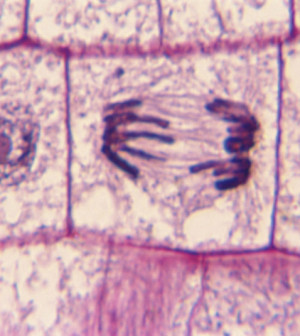- Could Your Grocery Store Meat Be Causing Recurring UTIs?
- Are You Making This Expensive Thermostat Error This Winter?
- Recognizing the Signs of Hypothyroidism
- 10 Strategies to Overcome Insomnia
- Could Artificial Sweeteners Be Aging the Brain Faster?
- Techniques for Soothing Your Nervous System
- Does the Water in Your House Smell Funny? Here’s Why
- Can a Daily Dose of Apple Cider Vinegar Actually Aid Weight Loss?
- 6 Health Beverages That Can Actually Spike Your Blood Sugar
- Treatment Options for Social Anxiety Disorder
Gene Therapy May Offer Hope for ‘Bubble Boy’ Disease

A new gene therapy shows preliminary promise against so-called “Bubble Boy” disease, researchers report.
A small, early-stage trial assessed the safety and effectiveness of the gene therapy in five patients with Bubble Boy disease, formally known as severe combined immunodeficiency disease (SCID). Previous bone marrow transplants had failed to correct their immune function.
SCID is a severe, inherited disorder that affects males and occurs in 1 in every 50,000 to 100,000 live births. It is caused by a mutation in the IL2RG gene that leaves boys with little or no immune system protection, the researchers said.
According to the U.S. National Institute of Allergy and Infectious Diseases, SCID is fatal, often within the first year or two of life, unless infants receive immune-restoring treatments, such as transplants of blood-forming stem cells, gene therapy or enzyme therapy.
The patients in the new study, aged 7 to 23, underwent a treatment developed by researchers at St. Jude Children’s Research Hospital, in Memphis, Tenn., and the U.S. National Institute of Allergy and Infectious Diseases.
“This study demonstrates that lentivirus gene therapy, when combined with busulfan conditioning, can rebuild the immune system and lead to broad immunity in young adults with this devastating disorder,” study co-senior author Dr. Brian Sorrentino, of the St. Jude hematology department, said in a hospital news release. A lentivirus is a virus with a long incubation period, and busulfan is a chemotherapy drug.
In the therapy, re-engineered lentivirus is used to deliver a correct copy of the mutant gene to the blood-producing stem cells of patients, the study authors said.
“While additional clinical experience and follow-up is needed, these promising results suggest gene therapy should be considered as an early treatment for patients in order to minimize or prevent the life-threatening organ damage that occurs when bone marrow transplant therapy fails to provide a sufficient immune response,” Sorrentino said.
The study was published April 20 in the journal Science Translational Medicine.
More information
The U.S. National Institute of Allergy and Infectious Diseases has more about severe combined immunodeficiency disease.
Source: HealthDay
Copyright © 2026 HealthDay. All rights reserved.










